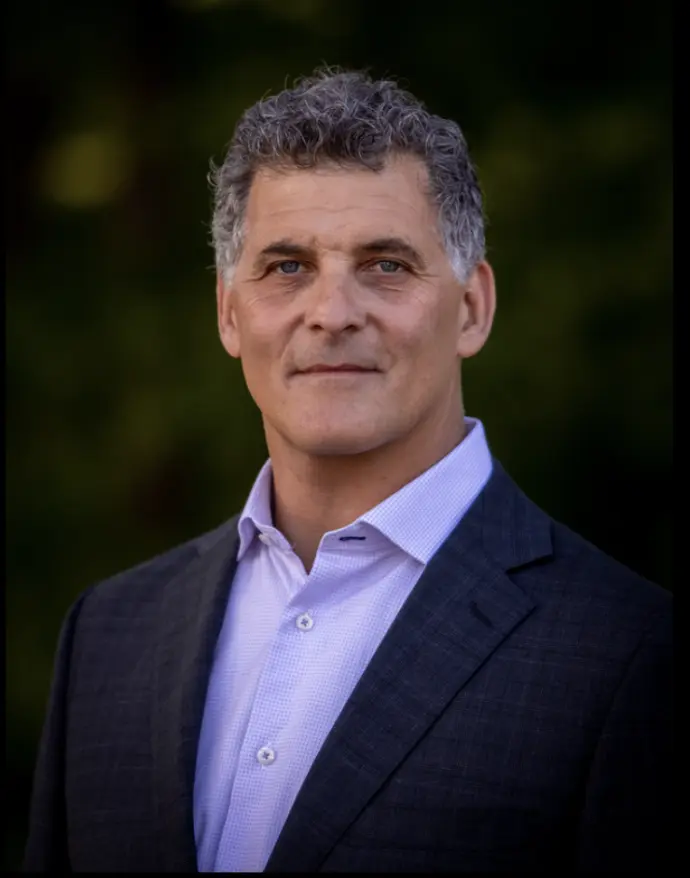Brad Lichtenstein is an award-winning filmmaker. His recent film, When Claude Got Shot premiered at the 2021 SXSW film festival and was featured in May of 2022 on PBS series Independent Lens. It won the 2022 Emmy for Exceptional Merit in Documentary Filmmaking. He’s been nominated for two Emmys: one Sports Emmy for the VR film Ashe ’68, which premiered at Sundance in 2019, and a News and Documentary Emmy for the 2012 Independent Lens/PBS film As Goes Janesville.

He’s won two Duponts: one for the 2016 Al Jazeera America series Hard Earned and another for his 2001 film Ghosts of Attica. American Coup: Wilmington 1898 is his latest film.
American Coup tells the little-known story of a deadly race massacre and carefully orchestrated insurrection in North Carolina’s largest city in 1898 — the only coup d’état in the history of the US. Stoking fears of “Negro Rule,” self-described white supremacists used intimidation and violence to destroy Black political and economic power and overthrow Wilmington’s democratically elected, multi-racial government. Black residents were murdered, and thousands were banished. The story of what happened in Wilmington was suppressed for decades until descendants and scholars began to investigate. Today, many of those descendants — Black and white — seek the truth about this intentionally buried history.
Like the Tulsa Race Massacre of 1921, the coup in Wilmington, NC, in 1898 was buried away from public knowledge until quite recently. How did you come across it?
The Wilmington coup and massacre was deliberately erased. In fact the perpetrators began erasing it immediately. A single scholar wrote about it truthfully in the 50s, half a century later, but it was not widely known until 100 years later when, in 1998, the community organized a commemoration and the beginning of dialogue between the descendants of the white perpetrators and the Black victims. It is haunting to think that right now in America there are some in power seeking to erase the hard truths of our past, again. It is so un-American to be intimidated by our history, but that's how some people feel. To me, the promise of America is fulfilled with we are honest about our past and strive to build the nation we want to live in, together. I never knew about this massacre or the some 130 that took place between the end of the Civil War and Tulsa. I'm glad that PBS North Carolina reached out to Yoruba and me to direct American Coup.
You interviewed many of the descendants of both the perpetrators and the victims of the coup. Were they all aware of the whole story? What was the most striking reaction you had in those discussions?
I met many of the descendants at the same time that they were meeting each other, during a commemoration gathering and ceremony. Most had only a patchwork of knowledge about the coup. Like my own history of the Holocaust, some of the Black descendants urged their children and grandchildren never to speak of it, to move on. One man who came to Wilmington from Los Angeles said he'd refused to visit for decades until his son, in our movie, emerged as a leader in pushing for commemoration and potentially reparations. There were white descendants who avoided engaging with it or even pretended that their families were not involved. One of the most moving stories in the film, maybe because it is so rare, is a white descendant who has made reparations. I love a scene when she is visiting the graves of her ancestors, in particular. What she says there, which I won't spoil, always gets me.
With libraries, museums, and print journalism all under attack, the story of how this story was hidden feels even more relevant in 2025. What’s do you feel is the most important lesson from this film?
Oh yes, there are many. One is the simple and obvious one - only undemocratic nations attempt to erase their past and attack journalists and others who are seeking truth. Freedom and the American spirit, the unity of our nation, depends on both being honest about who we are while moving forward together. The opposite of democracy is authoritarianism and attempts to erase our past, to attack journalism, a pillar of democracy, are authoritarian acts that need to be resisted. As horrible as some chapters of our history are, remember, there are many beautiful ones too. We need to know the whole story as we continue to create new chapters. It's interesting that our film shows what happens when newspapers are turned into manufacturers of lies. The result is political violence. I don't need to spell it all out for you. We need to pursue facts, to reckon with the truth, to celebrate our wins, and find some equanimity if we are going to avoid escalating the political violence in this country.
Brad Lichtenstein will be appearing at Ideas Festival Emory on October 18th at noon in the Greer Forum at Oxford College. The session American Coup: Wilmington 1898 will also feature Carol Anderson, the Robert W. Woodruff Professor of African American Studies at Emory University.